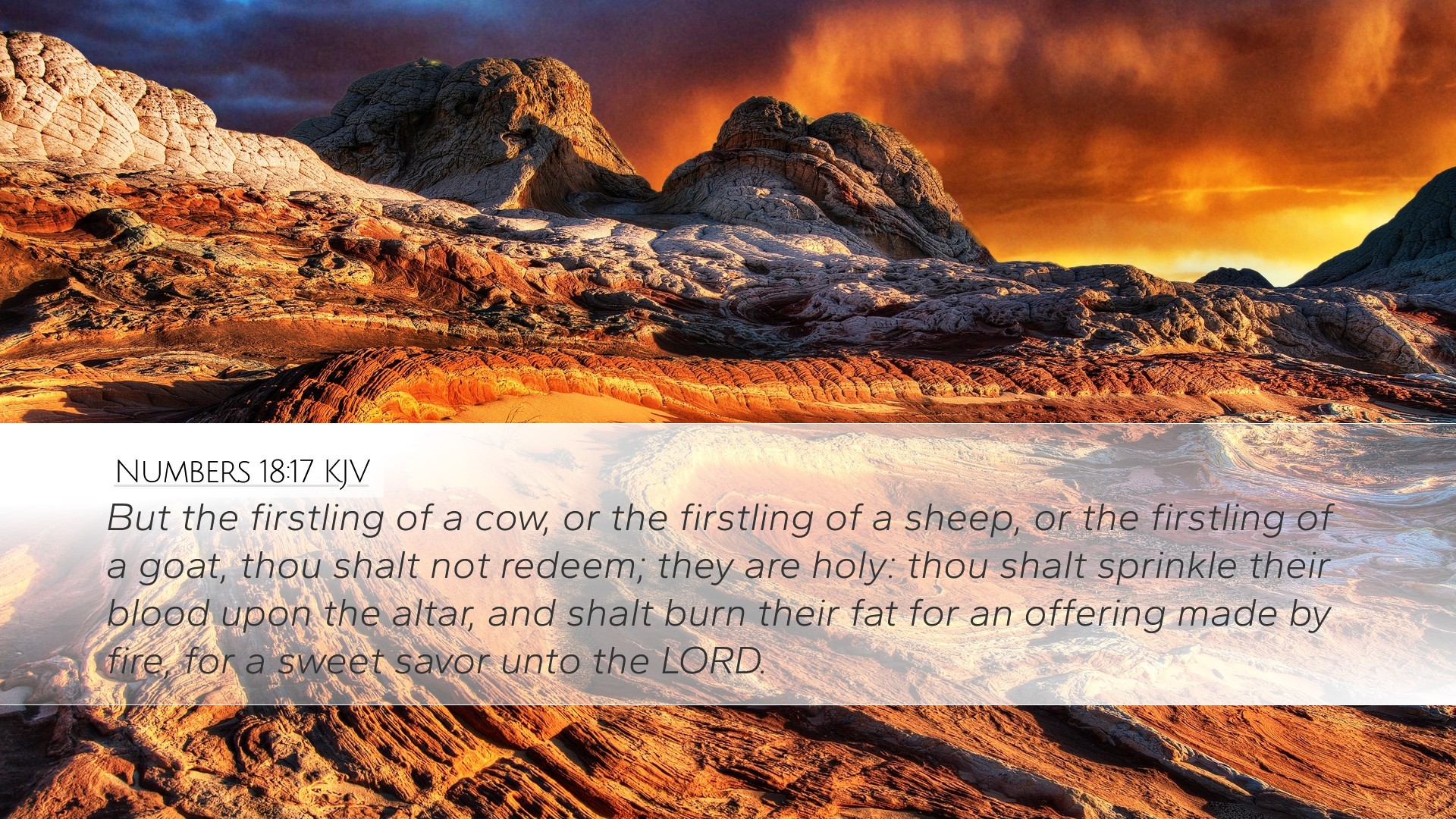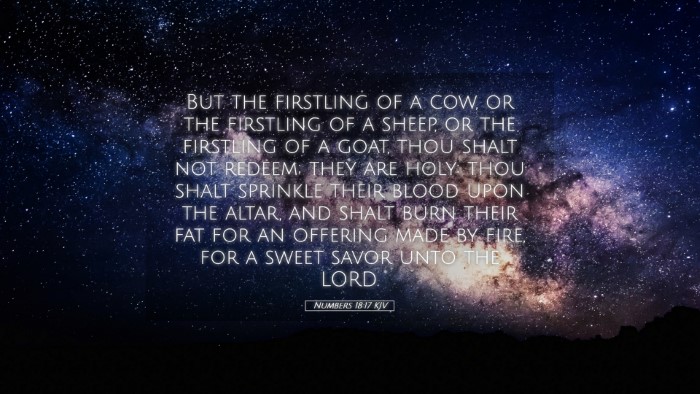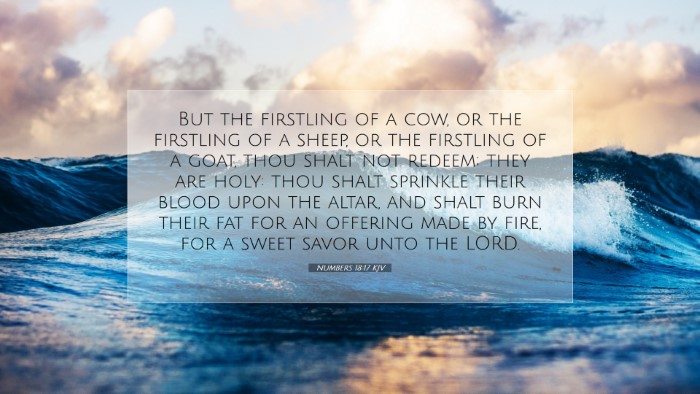Commentary on Numbers 18:17
Verse: "But the firstling of a cow, or the firstling of a sheep, and the firstling of a goat, thou shalt not redeem; they are holy: thou shalt sprinkle their blood upon the altar, and shalt burn their fat for an offering made by fire, for a sweet savour unto the Lord."
Introduction
The passage found in Numbers 18:17 speaks to the holiness of the firstlings of cattle and the specific sacrificial practices commanded by God. This commentary draws from the insights of notable public domain theologians like Matthew Henry, Adam Clarke, and Albert Barnes, to illuminate the spiritual and practical implications of this verse.
Holiness of the Firstlings
This verse underscores the principle of holiness assigned to the firstborn from both animals and people. As Matthew Henry notes, the firstborn holds a special place, as it symbolizes God's right to the first fruits of creation. The idea of consecration is central here:
- Significance of Firstlings: They are set apart for God, signifying not just a sacrifice, but an acknowledgment of God's sovereignty over creation.
- Type of Christ: The firstlings reflect the ultimate sacrifice of Christ, who is regarded as the firstborn of all creation, presenting a foreshadowing of His redemptive work.
Sacrificial Practices
Albert Barnes elaborates on the prescribed sacrificial act associated with these firstlings, highlighting several critical components:
- Sprinkling of Blood: The act of sprinkling the blood upon the altar signifies atonement and divine acceptance. This practice illustrates the seriousness of sin and the requisite payment for redemption.
- Burning of Fat: The fat, considered the best portion, was to be consumed in the offering. It reveals the principle of giving God our best—a theme resonating throughout worship rituals in both the Old and New Testaments.
Theological Implications
Adam Clarke provides insight into the theological implications of this directive:
- Divine Order: The prescribed order of sacrifice demonstrates God’s systematic approach to worship, assuring that believers understand their role in divine artistry.
- Joyful Obedience: This act of sacrifice is not to be seen as a burden but rather as an opportunity for worship, offering a chance to express gratitude and reverence to God.
Spiritual Lessons
From the practical application of this verse, several spiritual lessons emerge:
- Prioritizing God: The firstlings serve as a reminder to prioritize God in our lives, offering the first and best of our resources—time, talent, and treasure.
- Understanding Sacrifice: A deeper realization of the cost of holiness; as Christ sacrificed Himself, believers are called to offer their lives as living sacrifices (Romans 12:1).
- Restoration and Atonement: Through the ritual of sacrificing, believers are reminded of their need for God’s atonement and grace continually.
Conclusion
In conclusion, Numbers 18:17 encapsulates profound truths concerning the nature of God, the call to holiness, and the importance of sacrificial worship. It challenges believers to acknowledge God's lordship over their lives and to respond with joy and grateful sacrifice, mirroring the unwavering dedication of the Israelites in their worship practices.
The insights from Matthew Henry, Albert Barnes, and Adam Clarke collectively emphasize the weight of obedience and sacrificial love required in the believer's walk with God. By engaging in these practices, modern Christians can draw closer to the Creator, recognizing that the sacrifices of yesterday hold enduring significance today.


